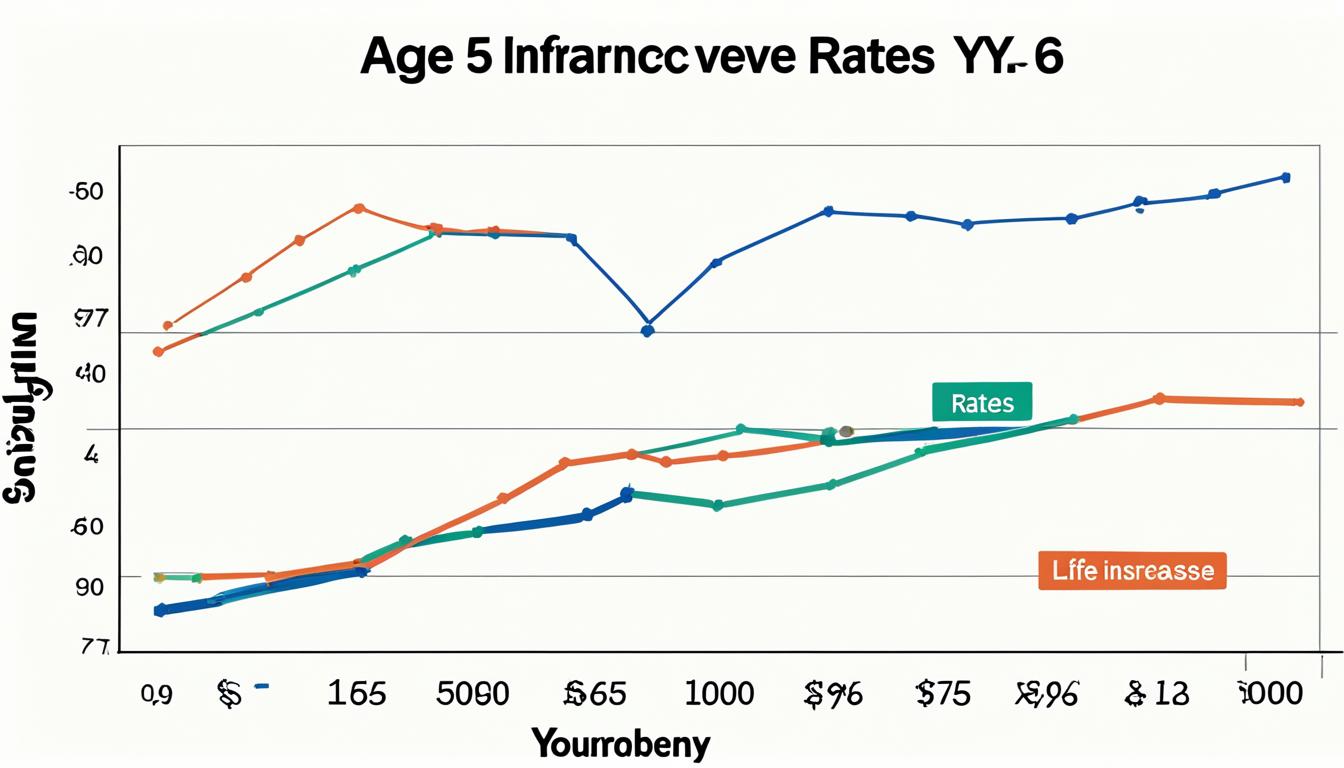Life insurance Whole life insurance provides lifelong coverage and financial protection for the policyholder and their family. It offers the security of knowing that your loved ones will be taken care of financially in the event of your death.
Key Takeaways:
- Whole life insurance offers lifelong coverage and financial protection.
- It provides security for your loved ones in the event of your death.
- Policyholders can rest assured knowing their family’s future is secure.
- This type of insurance offers peace of mind and financial stability.
- Consider whole life insurance to protect your family’s financial future.
Understanding the Basics of Life Insurance
When it comes to purchasing life insurance, it’s essential to have a solid understanding of the basics. There are two main types of life insurance: term life insurance and permanent life insurance. Let’s take a closer look at each.
Term Life Insurance
– Term life insurance provides coverage for a specific period of time, typically 10, 20, or 30 years.
– It offers a death benefit to the beneficiaries if the insured person passes away during the policy term.
– Term life insurance does not accumulate cash value and is often more affordable than permanent life insurance.
– This type of policy is suitable for individuals who need coverage for a specific period, such as paying off a mortgage or providing for their children until they are financially independent.
Permanent Life Insurance
– Permanent life insurance, such as whole life insurance, provides coverage for the entire lifetime of the insured individual.
– It offers a death benefit to the beneficiaries regardless of when the policyholder passes away, as long as the policy is active.
– Permanent life insurance accumulates a cash value over time, which can be accessed through policy loans or withdrawals.
– This type of policy provides lifelong protection and is often used for estate planning, leaving a legacy, or providing financial security for loved ones.
In both cases, the death benefit is the amount of money that is paid to the beneficiaries named in the policy upon the policyholder’s death.
Life insurance policies are provided by various insurance companies, each with their own offerings and terms. It’s important to research and compare different life insurance companies to find the one that best suits your needs and budget.
“When it comes to life insurance, understanding the basics is crucial. Whether you choose term life insurance or permanent life insurance, having this essential coverage can provide financial protection for your loved ones.” – [Author]
Assessing Your Coverage Needs
When it comes to determining the right amount of coverage for your life insurance policy, several factors need to be considered. One of the key aspects is the cash value component of a whole life insurance policy, which offers additional savings and investment opportunities over time.
Take into account the financial responsibilities your family will inherit, such as mortgages, car loans, or other debts. This will help you understand the level of financial protection they will need in the event of your passing.
Insurance companies offer various riders and additional benefits that can be added to your life insurance policy to meet your specific needs. Some common riders include accelerated death benefit riders, which provide a portion of the death benefit while you are still alive in case of a qualifying terminal, chronic, or critical illness. Another popular option is the waiver of premium rider, which waives future premium payments in the event of disability or unemployment.
Creating a comprehensive coverage plan that includes riders and benefits tailored to your circumstances ensures that your loved ones are protected and financially secure.
Determining Your Coverage Amount
Calculating the appropriate coverage amount for your life insurance policy involves evaluating several key factors:
- Your current and future income: Consider your current salary, potential future earnings, and the financial support your family would need in your absence.
- Financial obligations: Take into account ongoing expenses like mortgage payments, car loans, education costs, and other debts, as well as future financial goals such as retirement savings or college funds.
- Funeral expenses: Factoring in funeral and burial costs ensures that your loved ones aren’t left with additional financial burdens during a difficult time.
By assessing these factors and consulting with an insurance professional, you can determine the appropriate coverage amount for your life insurance policy that provides peace of mind for you and your family.

Table: Cash Value Comparison
| Years | Policy A | Policy B | Policy C |
|---|---|---|---|
| 5 | $10,000 | $12,000 | $8,000 |
| 10 | $15,000 | $18,000 | $12,000 |
| 15 | $20,000 | $24,000 | $16,000 |
By comparing the cash value growth of different policies over time, you can make an informed decision about the potential returns and investment options associated with each policy. This table shows a hypothetical comparison of cash values after various policy terms for Policy A, Policy B, and Policy C.
With a clear understanding of your coverage needs and the cash value component, you can select a life insurance policy that provides both financial protection and investment opportunities for you and your family.
Reviewing and Updating Your Policy
Regularly reviewing and updating your life insurance policy is crucial to ensure it continues to meet your needs over time. Various life events and changes in circumstances may prompt the need for adjustments, such as changes in your financial situation, the birth of a child, or a change in marital status. By staying proactive and managing your life insurance coverage, you can make sure that your policy aligns with your current requirements.
Factors to Consider
When reviewing your policy, it’s important to consider the following factors:
- Changes in your financial situation: Assess if your premiums are still affordable and if your coverage amount adequately reflects your current financial responsibilities.
- Life events: Evaluate how events such as the birth or adoption of a child, marriage, or divorce may impact your coverage needs and beneficiaries.
- Policy loans: If you’re considering taking out a loan against your policy’s cash value, weigh the potential impact on your coverage and long-term financial goals.
- Beneficiary updates: Review and update your beneficiaries as needed. Changes in relationships or family dynamics may require alterations to ensure your loved ones are appropriately protected.
By regularly reviewing your policy and making necessary updates, you can maintain an insurance coverage plan that aligns with your evolving needs.
“Life is dynamic, and life insurance policies should be too. Don’t forget to review your policy periodically and make necessary adjustments. It’s crucial to ensure that your coverage adequately protects your loved ones and reflects your current circumstances.” – Jane Johnson, Certified Financial Planner
Managing Premium Payments
Premium payments are essential to keep your life insurance policy active. It’s crucial to stay aware of the premium due dates and ensure timely payments to maintain coverage. Consider the available premium payment options provided by your insurance company, such as monthly, quarterly, or annual payments, and choose the option that works best for your financial situation.
Changing Beneficiaries
Life circumstances can change, influencing the choice of beneficiaries for your life insurance policy. Whether it’s due to the birth of a child, marriage, divorce, or other reasons, it’s important to keep your beneficiary designations up to date. Consult with your insurance provider for the necessary steps to change beneficiaries, ensuring your loved ones are appropriately protected.
Stay proactive in reviewing and updating your life insurance policy to guarantee that it aligns with your evolving needs. By managing premium payments, considering policy loans, and making changes to beneficiaries, you can maintain a comprehensive life insurance coverage plan that provides the necessary financial protection for your loved ones.
Choosing the Right Beneficiary
Naming the right beneficiary is a crucial decision when it comes to life insurance. The beneficiaries are the individuals or entities who will receive the death benefit from the policy in the event of your passing. It’s important to carefully consider your options and the specific needs of your loved ones when selecting beneficiaries.
You have the option to choose both primary beneficiaries and contingent beneficiaries. Primary beneficiaries are the individuals who will receive the death benefit if they outlive you. Contingent beneficiaries, on the other hand, are the secondary recipients who will receive the proceeds if the primary beneficiaries predecease you.
When deciding on your primary beneficiaries, think about your immediate family members and their financial needs. Consider if any of them are minor children who may require a trust to manage the life insurance proceeds. You may want to designate your spouse, domestic partner, or other close relatives as your primary beneficiaries.
For contingent beneficiaries, it’s important to think about backup options in case the primary beneficiaries are unable to receive the death benefit. This can include other family members, charitable organizations, or even your estate.
Key Considerations when Choosing Beneficiaries:
- Assess the specific needs of your loved ones
- Consider if any beneficiaries are minor children who may need a trust
- Choose primary beneficiaries who will receive the death benefit if they outlive you
- Designate contingent beneficiaries as backup options
“Choosing the right beneficiaries ensures that your life insurance proceeds are distributed according to your wishes and that your loved ones are provided for financially.”
By carefully choosing your beneficiaries, you can ensure that your life insurance policy provides the necessary financial support to those who depend on you. Keep in mind that life circumstances may change, so it’s important to regularly review and update your beneficiaries as needed.

Locating Your Life Insurance Policy
If you need to locate the company that services your life insurance policy, there are several steps you can take to find the necessary information. Start by checking your policy documents for details such as the life insurance company’s legal name, mailing address, and phone number.
It’s important to have this information readily available as it will be used for any future communication or inquiries regarding your policy. In the event that you can’t locate your policy documents, you may need to take additional steps to determine the servicing company.
If you are unable to find the necessary details within your policy documents, the next course of action is to reach out to your state insurance department. They can provide assistance in tracking any changes or mergers that may have occurred with the life insurance company that holds your policy.
State insurance departments serve as valuable resources for policyholders, offering guidance and information on various insurance matters. They work to ensure that policyholders receive the necessary support and protection they deserve.
Another option available to policyholders is utilizing a policy locator service. These specialized services are designed to help individuals find missing or lost life insurance policies. By providing necessary information and conducting thorough searches, policy locator services can narrow down potential insurers and assist in reconnecting policyholders with their policies.
When using a policy locator service, be prepared to provide as much information as possible, such as the policyholder’s name, date of birth, and social security number. The more details you can provide, the higher the likelihood of locating your policy.
Ultimately, whether you’re reviewing your policy documents, seeking assistance from your state insurance department, or using a policy locator service, taking the necessary steps to locate your life insurance policy will help ensure that you have the information you need for future reference and peace of mind.

Steps to Locate Your Life Insurance Policy
| Steps | Description |
|---|---|
| 1 | Check policy documents |
| 2 | Contact your state insurance department |
| 3 | Utilize a policy locator service |
The Role of Life Insurance in Financial Planning
Life insurance plays a vital role in ensuring financial stability and security for your loved ones. It serves multiple purposes in your overall financial planning strategy, helping to address various needs and contingencies.
1. Income Replacement
One of the primary benefits of life insurance is the ability to replace lost income in the event of your passing. Life insurance payouts can provide a financial cushion for your family, ensuring that they are not burdened with sudden loss of income and allowing them to maintain their standard of living.
2. Debt Repayment
Life insurance can also be used to repay outstanding debts, such as mortgages, car loans, or personal loans. By designating the death benefit towards debt repayment, your family can avoid inheriting financial obligations and focus on rebuilding their lives.
3. Education Expenses
Planning for your children’s education is an essential aspect of financial planning. Life insurance can help fund their educational expenses, ensuring that they have the resources they need to pursue their dreams and aspirations.
4. Funeral Expenses
Funeral and burial costs can place a significant financial burden on your family during an already difficult time. Life insurance can provide the necessary funds to cover these expenses, relieving your loved ones of the financial stress associated with funerals and allowing them to focus on mourning and healing.
5. Future Financial Security
Life insurance offers long-term financial security for your family. It provides a safety net that ensures their well-being even in your absence. The death benefit can be used to supplement retirement savings, invest in income-generating assets, or create a financial legacy for future generations.
6. Business Continuity
If you’re a business owner, life insurance can play a crucial role in ensuring business continuity. By incorporating life insurance into your business planning, you can provide funds to cover expenses, repay debts, or facilitate the smooth transition of ownership in the event of your death.
By considering these factors and choosing the right life insurance policy, you can effectively align your financial goals and protect your family’s future.

| Benefits of Life Insurance in Financial Planning | Examples |
|---|---|
| Income Replacement | Replacing lost income to support your family |
| Debt Repayment | Paying off outstanding debts to prevent financial burden |
| Education Expenses | Funding your children’s education for a bright future |
| Funeral Expenses | Covering the costs associated with funerals and burials |
| Future Financial Security | Ensuring long-term financial stability for your family |
| Business Continuity | Protecting your business and its operations |
Shopping for Life Insurance
When shopping for life insurance, it’s crucial to make an informed decision that aligns with your financial goals and provides adequate coverage for your loved ones. To ensure you find the best policy for your needs, consider the following:
Research Insurance Providers
Take the time to research different insurance providers and understand their offerings. Look for reputable companies with a strong track record in the insurance industry. Evaluate the types of life insurance they offer, their customer service reputation, and their financial stability. Checking online reviews and ratings can give you insights into the experiences of other policyholders.
Seek Professional Advice
Consulting with experienced professionals, such as insurance agents or financial advisors, can help you navigate the complexities of life insurance. They can provide personalized guidance based on your unique circumstances and help you understand the different policy options available. An expert can also assist you in determining the appropriate coverage amount and selecting riders or additional benefits that suit your needs.
Request Multiple Quotes
To ensure you’re getting the best value for your money, request multiple quotes from different insurance providers. This allows you to compare premiums, coverage options, and benefits offered by each company. By gathering multiple quotes, you can make an informed decision and choose the policy that provides the most comprehensive coverage at a competitive premium.
Consider Reviews and Recommendations
Take into account reviews and recommendations from friends, family, or trusted sources. Hearing about other individuals’ experiences with a particular insurance provider can provide valuable insights into their customer service, claims process, and overall satisfaction. However, it’s essential to remember that everyone’s insurance needs are different, and what works for one person may not work for another.
“Shopping for life insurance requires thorough research and careful consideration. By exploring insurance providers, seeking professional advice, requesting multiple quotes, and considering reviews, you can make an informed decision that provides the best coverage for your loved ones.”
By following these tips and being diligent in your search, you can find a life insurance policy that meets your needs and secures the financial future of your family.

Pros and Cons of Insurance Providers
| Insurance Provider | Pros | Cons |
|---|---|---|
| Company A | Competitive premiums | Limited policy options |
| Company B | Variety of coverage options | Higher premiums |
| Company C | Excellent customer service | Relatively new in the market |
Remember, choosing the right life insurance policy requires careful consideration and an understanding of your own unique needs. Take your time, do your research, and consult with professionals to find the policy that provides the proper financial protection for your loved ones.
The Benefits of Whole Life Insurance
Whole life insurance offers a range of benefits that make it an attractive choice for individuals and families seeking long-term financial security. From fixed premiums to customized policies, here are some advantages of whole life insurance:
Fixed Premiums
One of the key benefits of whole life insurance is the assurance of fixed premiums that remain constant over time. This means that the premium you pay when you first purchase the policy will never increase, providing stability and predictability in your financial planning.
Cash Value
Whole life insurance policies also come with a cash value component that grows over time. As you continue to make premium payments, a portion of that payment goes towards building cash value. This cash value can be accessed through policy loans or withdrawals, providing you with additional financial flexibility and potential investment opportunities.
Customized Policies
Whole life insurance allows policyholders to tailor their coverage to fit their specific goals and budget. You can work with your insurance provider to customize the policy terms, death benefit amount, and additional riders or benefits to match your individual needs. This ensures that you have a policy that aligns with your unique circumstances and priorities.
Lifelong Coverage
With whole life insurance, you can enjoy lifelong coverage. Unlike term life insurance, which only provides coverage for a specific period of time, whole life insurance offers protection for the entire duration of your life. This means that as long as you continue to pay your premiums, your loved ones will receive the death benefit when you pass away, providing them with financial security and peace of mind.
Financial Security
Perhaps the most important benefit of whole life insurance is the financial security it provides for your loved ones. In the event of your death, the policy’s death benefit can be used to cover various expenses, such as funeral costs, outstanding debts, and ongoing living expenses. It can help ensure that your family can maintain their standard of living and achieve their financial goals, even in your absence.
Whole life insurance offers fixed premiums, a cash value component, customized policies, lifelong coverage, and financial security for your loved ones. It provides peace of mind knowing that you have a comprehensive insurance solution that will safeguard your family’s future.
Choosing NSA Insurance Solutions for Whole Life Insurance
When it comes to securing lifelong coverage and financial security for your loved ones, NSA Insurance Solutions is your trusted partner. Our comprehensive whole life insurance policies offer peace of mind, knowing that your family’s future is protected.
At NSA Insurance Solutions, we understand that every individual has unique goals and budgetary considerations. That’s why our experienced agents work closely with you to customize a policy that meets your specific needs. Whether you’re looking for a higher cash value component, flexible premium options, or additional riders, we have you covered.
Also Read:- Globe Life Insurance Reviews: Get The Facts
Exceptional customer service is at the heart of everything we do. Our team is dedicated to providing you with prompt and personalized assistance throughout the entire process. From policy selection to claims handling, we are here to ensure that you receive the support you deserve.
With NSA Insurance Solutions, you can trust that your whole life insurance needs are in good hands. Join the countless policyholders who have chosen us for their financial security. Contact us today to learn more about our customized policies and exceptional customer service.
| Insurance Provider | Whole Life Policy Features | Customer Service | Customized Options |
|---|---|---|---|
| NSA Insurance Solutions | Lifelong coverage with fixed premiums lifelong coverage financial security | Exceptional customer service and claims handling exceptional customer service | Customizable policies tailored to your goals and budget customized policies |
| Competitor A | Limited coverage term with premium increases over time | Standard customer service with average response times | Limited options for customization exceptional customer service |
| Competitor B | Lifelong coverage with potential premium fluctuations | Inconsistent customer service with mixed reviews | Partial customization options customized policies |
As you can see from the comparison table above, NSA Insurance Solutions stands out among competitors in terms of lifelong coverage, exceptional customer service, and the ability to customize policies to fit your individual needs. Don’t settle for anything less when it comes to protecting your family’s future. Choose NSA Insurance Solutions for peace of mind and financial security.
Conclusion
Whole life insurance offers policyholders lifelong coverage and financial protection for their loved ones. It provides peace of mind, knowing that your family will be financially taken care of in the event of your death. By choosing a whole life insurance policy, you can ensure that your loved ones have the necessary support to maintain their standard of living and meet their financial needs.
With whole life insurance, you have the advantage of fixed premiums that will never increase over time. This means that you can budget with confidence, knowing exactly what your premium payments will be throughout the life of the policy. Additionally, whole life insurance policies often have a cash value component that grows over time, providing a source of savings and potential investment opportunities.
When selecting a life insurance policy, it’s important to consider the benefits and options available to you. Whole life insurance provides the policyholder with lifelong coverage, ensuring that your loved ones will receive the financial protection they need, no matter when you pass away. Take the time to explore different policies, evaluate your specific needs, and consult with trusted insurance professionals to find the right fit for you and your family.
FAQs
Q: What is whole life insurance?
Whole life insurance provides lifelong coverage and financial protection benefits to help for the policyholder and their family.
Q: What is the difference between term life insurance and permanent life insurance?
Term life insurance provides coverage for a specific period of time, while permanent life insurance, such as whole life insurance, offers protection for the entire lifetime of the insured.
Q: What is the death benefit in a life insurance policy?
The death benefit is the amount of money paid to the beneficiaries upon the policyholder’s death.
Q: How do I determine the amount of coverage I need?
Consider factors such as the financial responsibilities your family will inherit, such as mortgages or car loans.
Q: Can whole life insurance policies grow in value?
Yes, whole life insurance policies often have a cash value component withdraw or borrow that grows over time, providing additional savings and investment opportunities.
Q: How often should I review my life insurance policy?
It’s important to regularly review your life insurance policy to ensure it still meets your needs, especially when there are changes in your financial situation or family status.
Q: Who should I name as my beneficiary?
You can choose primary beneficiaries who will receive the death benefit if they outlive you, and contingent beneficiaries who will receive the proceeds if the limited payment policy primary beneficiaries predecease you.
Q: How can I locate the company that services my life insurance policy?
Start by checking your policy documents for information such as the company’s legal name, mailing address, and phone number. You can also contact your state insurance department or use national policy locator services.
Q: What role does life insurance play in financial planning?
Life insurance can help replace lost income, repay debts, fund education expenses, cover funeral costs, and provide future financial security for your loved ones.
Q: How do I choose the right life insurance policy?
Research different insurance providers and their offerings, ask for multiple quotes, and consider reviews and recommendations to find the best life insurance pay premiums policy for your needs.
Q: What are the benefits of whole life insurance?
Whole life insurance offers benefits such as fixed premiums, cash value growth, and the ability to customize your policy to fit your specific goals and budget.
Q: What is whole life insurance and how does it work?
A: Whole life insurance is a type of permanent life insurance that offers coverage for the insured’s entire life. It also includes a cash value component that grows over time, providing a savings element along with the death benefit.
Q: What are the benefits of whole life insurance?
A: Whole life insurance offers several benefits, including a guaranteed death benefit, cash value that grows tax-deferred, the ability to borrow against the cash value, number of years and the option to receive dividends from the insurance company.
Q: How does whole life insurance differ from term life insurance?
A: Unlike term life insurance, which provides coverage for a specific period, whole life insurance is a permanent life insurance policy that remains in force for the insured’s entire life as long as premiums are paid.
Q: What is the cash value of whole life insurance?
A: The cash value of whole life insurance refers to the savings component of the policy, which grows over time as premiums are paid. This cash value can be insurance rates used to borrow against or as a source of savings.
Q: What are dividends in the context of whole life insurance?
A: Dividends are a portion of the insurance company’s profits that are distributed to the policyholders of participating whole life insurance policies. Policyholders can choose to receive dividends in the form of cash, use them to reduce premiums, or purchase additional insurance.
Q: How do I decide if whole life insurance is right for me?
A: The decision to choose whole life insurance depends on factors such as your long-term financial goals, risk tolerance, and the need for lifelong coverage and a savings element. Consulting with a financial advisor can help you determine if whole life insurance is suitable for your situation.
Q: What are riders in whole life insurance policies?
A: Riders are additional insurance benefits that can be added to a whole life insurance policy to customize coverage based on the policyholder’s specific term life policy needs. Examples of riders include accelerated death benefit riders and waiver of premium riders.
Q: How do whole life insurance costs compare to term life insurance?
A: Whole life insurance is generally more expensive than term life insurance due to its permanent coverage and cash value component. However, the premiums for variable universal life whole life insurance remain level throughout the insured’s life, while term life insurance premiums increase with age.
Q: What are the best whole life insurance companies?
A: Some of the top whole life insurance companies include New York Life, Guardian Life, and other well-established insurance companies known for their financial stability and strong reputations in the industry.
Q: Can I get a quote for whole life insurance?
A: Yes, most insurance companies offer the option to request a quote for whole life insurance. You can provide your basic information and coverage needs to receive a personalized quote from the insurance company.




